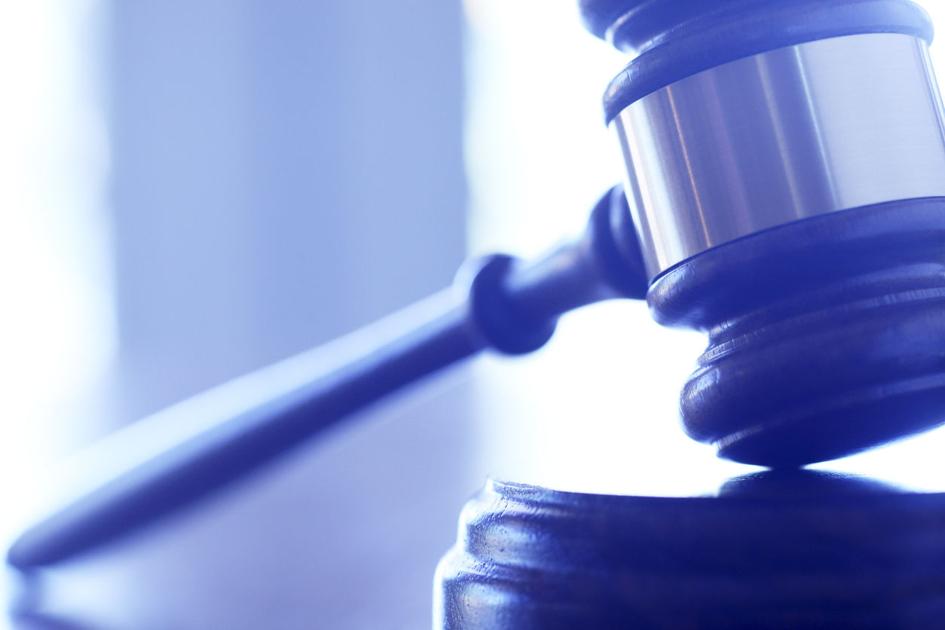
The First Amendment does not protect a Colorado attorney from being disciplined for using an anti-gay slur to describe a judge, the state Supreme Court ruled on Monday.
While acknowledging the professional misconduct rule for lawyers does serve to censor speech that is permissible in other contexts, the justices determined there was a well-established, compelling interest in regulating the language of attorneys.
The rule “protects clients and other participants in the justice system from discrimination and harassment. There is no question that a lawyer’s use of derogatory or discriminatory language that singles out individuals involved in the legal process damages the legal profession and erodes confidence in the justice system,” wrote Justice Melissa Hart in the Court’s opinion.
Robert E. Abrams, who was representing a couple in a dispute against a contractor, reported that former Arapahoe County District Court Judge Phillip Douglass attacked him verbally during a case management conference in March 2016. Abrams left the hearing feeling that he could not represent his clients before a jury if the judge treated him that way at trial.
After the couple expressed concern, Abrams explained over email that “I probably remind [Douglass] of someone who beat him up [when he] was a fat kid and now that he’s a big fat judge he gets even w/ the bullies. Maybe he just hates Jews, who knows?”
Then, Abrams wrote that while he was handling a related case, “I was getting yelled at by Fatso [Douglass]. The judge is a gay, fat, [f-g], now it’s out there.” Abrams, during his disciplinary hearing, later said his comments were a “street read” on Douglass, and claimed he was calling the judge a “sissy,” rather than commenting on his sexual orientation.
In 2019, the Office of Attorney Regulation Counsel filed a complaint alleging Abrams violated a rule regarding client billing, as well as the rule deeming it misconduct if a lawyer behaves in a way that engenders “bias against a person on account of that person’s race, gender, religion, national origin, disability, age, [or] sexual orientation.”
Although Abrams argued he was not acting out of bigotry, and a three-member hearing board for the Presiding Disciplinary Judge agreed there was no evidence of that, the board determined Abrams violated the rule.
“This rule does not regulate bigotry; it regulates behavior,” the board concluded.
In reaching its decision, the board was unpersuaded by Abrams’s explanation that he was calling the judge a “sissy,” instead finding that he knew the slur referred to a gay man. It ordered Abrams to complete 18 months of probation in lieu of suspending his license. He also needed to attend ethics training, plus eight hours of cultural awareness and sensitivity education.
Abrams appealed to the Supreme Court, and his lawyers asserted the hearing board’s decision was intended to “demean Abrams by improperly attacking his psyche and unfairly suggesting he is a bad lawyer who is psychologically flawed.” Abrams further argued the disciplinary action against him impaired “his right to speak freely in Colorado and as a citizen of the United States of America.”
It “seems appropriate and needed,” he added, for the Supreme Court to give lawyers a list of words that are unacceptable to use.
Justin P. Moore, assistant regulation counsel, responded that the First Amendment does not provide attorneys with an “impermeable cloak” to protect their comments. He referenced the Supreme Court’s 2019 censure of former Court of Appeals Judge Laurie A. Booras, who privately called her colleague — a Latina judge — a “little Mexican,” using it as an example of the First Amendment not protecting biased comments.
According to the Supreme Court, in nearly 30 years, only four other attorneys have received sanctions for violating the rule against biased speech. Those instances involved lawyers employing sexist language, using the term “ghetto” in reference to a Black client’s child and making “overtly sexual comments” to a judge. Abrams’s slur against Douglass, Hart wrote, was “exactly the type of conduct” the rule was meant to curb.
The Court determined the rule was neither so broad nor vague that it failed to put lawyers on notice about what type of conduct was barred. The justices also believed the Presiding Disciplinary Judge did not abuse his authority by limiting favorable testimony about Abrams’s past interactions with the LGBTQ community.
“We agree with the hearing board’s conclusion that proof of a violation of this Rule does not require the People to demonstrate that an attorney actually harbors bias against a person on the basis of a protected classification,” Hart explained. “The Rule only addresses the attorney’s outward behavior; it does not attempt to police whether a lawyer privately holds prejudicial beliefs.”
Ann Stanton, president of the Colorado LGBT Bar Association, said this was the first time a lawyer had received public discipline for anti-gay comments, and the case illustrated a persistent need to eradicate bias in the legal profession.
“The conduct described in this disciplinary action is abhorrent. But the facts of this case reflect an all-too-familiar reality to many of us LGBTQ attorneys: anti-LGBTQ bias persists in the legal community today,” she said. “Whether it’s in the form of microaggressions, overt harassment, or discrimination, many of us have experienced some form of implicit or explicit bias in this profession on account of our sexual orientation or gender identity.”
Abrams and his attorneys did not immediately respond to a request for comment.

